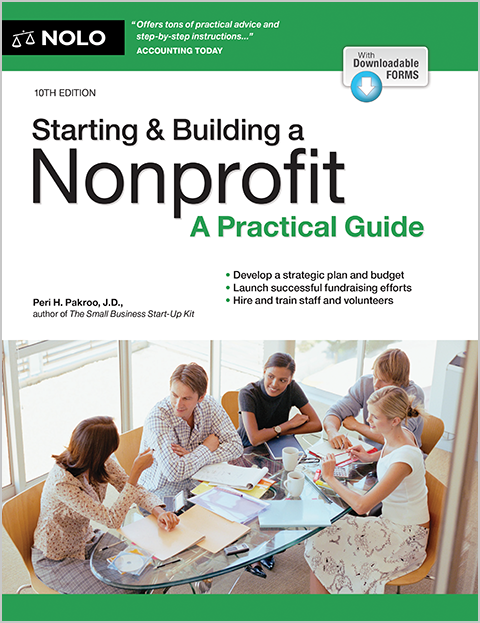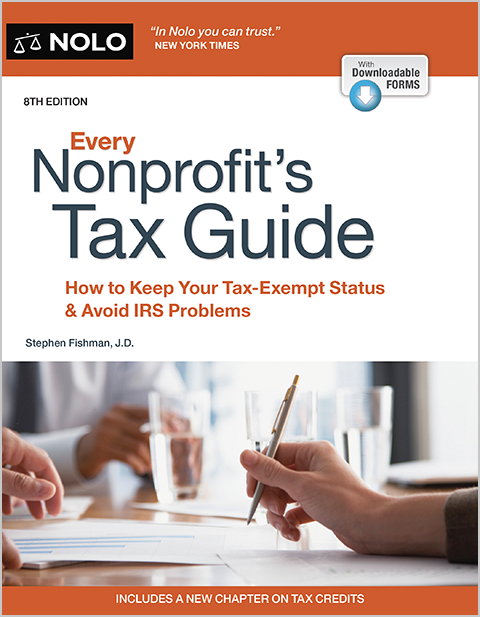Looking for ideas for fundraising events? Start with these basics.
If your nonprofit organization hasn't already put on at least one special event in the past in order to raise money, it's likely to do so in the not-too-distant future. Common types of nonprofit special events include dinners, auctions, fairs and festivals, lectures, benefit concerts, home and garden tours, tournaments, contests, sporting events, and walkathons. (You might also count garage sales, car washes, and bake sales, but we discuss these separately in Fundraising Through Garage Sales, Bake Sales, and More.)
Unfortunately, you can have a great party but not manage to raise any money. To make sure that isn't true of your group, follow the principles below.
In Person or Virtual?
Traditionally, a special event was a chance for people to gather in person, sometimes in huge crowds. But the COVID-19 pandemic resulted in many nonprofits shifting to virtual events either for public safety reasons or because the would-be attendees didn't feel safe.
Although live events are "back," having a virtual option remains a draw for many. People have gotten accustomed to being able to join online events from wherever they are in the world. It's been a boon to those with disabilities or other reasons for being unable to travel. The expectation going forward will likely be to have some sort of online participation available for many sorts of events.
How to engineer virtual or hybrid events is a bigger subject that can be addressed in a short article. You might want to engage tech and other experts to create a polished, seamless online production, ideally incorporating pre-recorded video and live elements. The days of scheduling a Zoom meeting and having people excited to show up are definitely over.
Choose the Right Special Event for Your Nonprofit Organization
Choose an event that fits your nonprofit's existing resources and advantages. If, for example, you've got a large physical facility, events that might attract a crowd, such as concerts or lectures, could be appropriate post-pandemic; though it's the last thing you'd want to attempt before that.
If you've got an unusually large volunteer corps, consider events that require large numbers of people to prepare or run, such as an auction (online or in-person), festival, or home tour. If you've got access to celebrities or experts, consider lectures, benefit concerts, or major donor parties.
Then consider whether the event is a good match for your mission, and fits the interests of your potential ticket-buying audience. Also consider whether it has a clear purpose for attendees. With attention spans shortening and a world of entertainment options available online, nonprofit experts have observed a clear trend away from people showing up for basic parties or social events.
Choose an Attractive and Affordable Venue
Finding a location that's pleasant to spend time in, convenient to your guests, offers the services and amenities you need, and fits within your budget is key to the success of any event. During pandemic times, this often means a place with outdoor meeting space or great ventilation and filtration systems.
With any luck, you'll find a location that you can return to year after year. When you've found the perfect spot, be sure to sign a contract covering the details.
Choose Add-Ons to the Main Event
Within the bounds of good taste, find every possible way to get your guests to open their wallets after they arrive. A silent auction combined with a dinner is the classic example.
And during pandemic times, some nonprofits have had success by combining an online virtual event with an in-person one; perhaps inviting a limited number of people to be the "studio audience" for an event that's being virtually broadcast, or having a small, in-person afterparty.
More ideas can be found in Ten Ways to Raise Extra Money During Your Special Event.
Consider Giving Out Awards
Did you ever think about why so many groups give out things like "Community Achievement," "Outstanding Citizen," or "Good Neighbor" awards? It's a way to emphasize community values and honor others, sure. But it's also a great way to boost attendance at your fundraiser. The awardees will attend. Their families will attend, some with free tickets, but you can set a limit on these. Some of their friends will also pay to attend.
Make a Separate Pitch for Support During the Event
Let's say your youth jazz band gives a benefit performance, and some audience members bring friends. Those friends probably weren't told anything more than, "Pick you up at 7:30." They have no idea that your group is providing important music instruction to replace the lack of it in the public schools. Even your existing members might be a little vague on the details.
One way to counter this is to have your organization's most dynamic personality take the stage at intermission and tell people about the great work you're doing and how they can help continue and expand it.
Keep It Green: Pay Attention to Environmental Issues
Attention to environmental goals when planning and implementing an event can boost attendance, audience excitement and participation, and media attention. It's particularly important for environmental organizations.
Develop a Realistic Budget
There's no great mystery to creating a special-events budget: You list all your anticipated expenses in one column, enumerate what you expect to bring in from various intended activities, and finally subtract your expected expenses from your anticipated revenues to give you a total.
The trick, of course, is accurately projecting expenses and income. Part of this involves taking your analysis to a micro level, so that you don't forget to budget for items like paper napkins, ice buckets, and microphone rentals. Another critical factor is how faithfully your volunteers follow through on certain activities, for example in getting donated food and chairs.
Plan and Pace Event Activities
The success of your event depends in large part on what goes on behind the scenes in the months or weeks leading up to it. First, you'll need to pick a date; ideally one that won't conflict with major holidays or even popular local events.
Allow plenty of lead time. The "classic" special event, such as an annual dinner, gala ball, golf tournament, or benefit concert, normally takes between six months to a year to prepare. And if you want to do a last-minute pivot, perhaps adding an in-person component to a virtual one, you'll need at least two months to get catering set up, handle RSVPs, and so on.
Get a head start on corporate sponsorships, which are crucial for most events' profitability. Most companies make their sponsorship decisions in either the last quarter of the preceding year or the first quarter of the year when the event will be held.
To figure out what needs to be done and by when, work backward from the day of the event. What are the final steps, such as picking up rental chairs and flowers? By when do these need to be ordered? By when do decisions need to be made about how many chairs and what type of flowers? Who will be responsible for the decisions? You get the drift.
Define Event Committees and Assign Leaders
Every special event needs a central point person to coordinate volunteers and keep things moving on schedule. But one person can't pull off an event alone. Identify all activities that need attending to, then create subject committees to match them.
Plan for Event Promotion and Publicity
Promotion is advertising that you arrange or pay for yourself, such as posters and invitations. Your newsletter, website, and Facebook page should start generating excitement weeks or even months in advance.
Publicity is media reporting. You'll need to send out press releases, ideally with photos, and get in touch with your favorite press contacts.
Deal With Event Risks and Liability Issues
Consider any minor or major disasters that might befall your event, such as a child's getting injured, a donor's drinking too much and causing an accident driving home, or a thief's taking your cash box. To forestall mishaps and disasters, take the following steps.
- Make sure you've complied with all applicable health and safety laws and permit requirements.
- Put your own sensible safety measures into place.
- Consider buying special insurance for the event.
Attend to Last-Minute Tasks
The days and hours leading up to the event are whirling-dervish time for even the most organized events planner or leader. Create checklists, review them frequently and carefully, and double check that all committee leaders are communicating with one another as needed.
If you're having a sit-down lunch or dinner event, take your final list of ticket buyers and create a seating chart of who will sit with whom.
Pack a bag of potentially useful supplies, such as adhesive tape, duct tape, scissors, pens, glue, petty cash, a stapler, trash bags, paper towels, first aid supplies, and so forth.
Enjoy the event!
For more help with fundraising, see Nolo's book, Effective Fundraising for Nonprofits.



